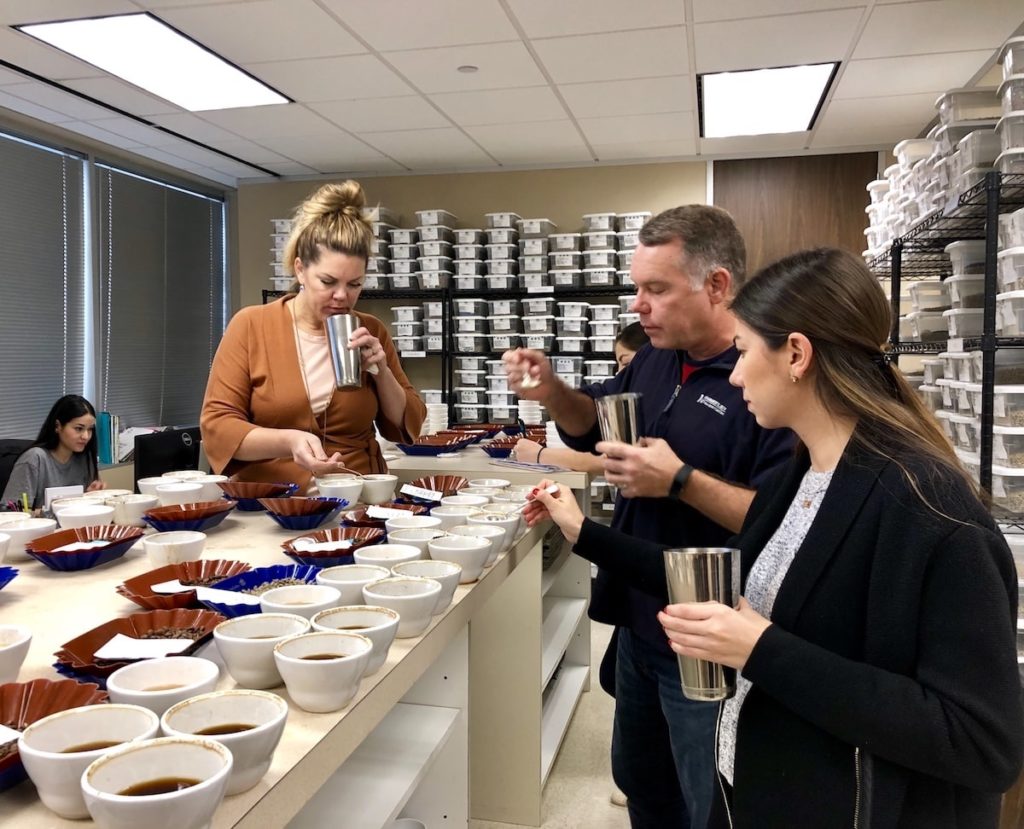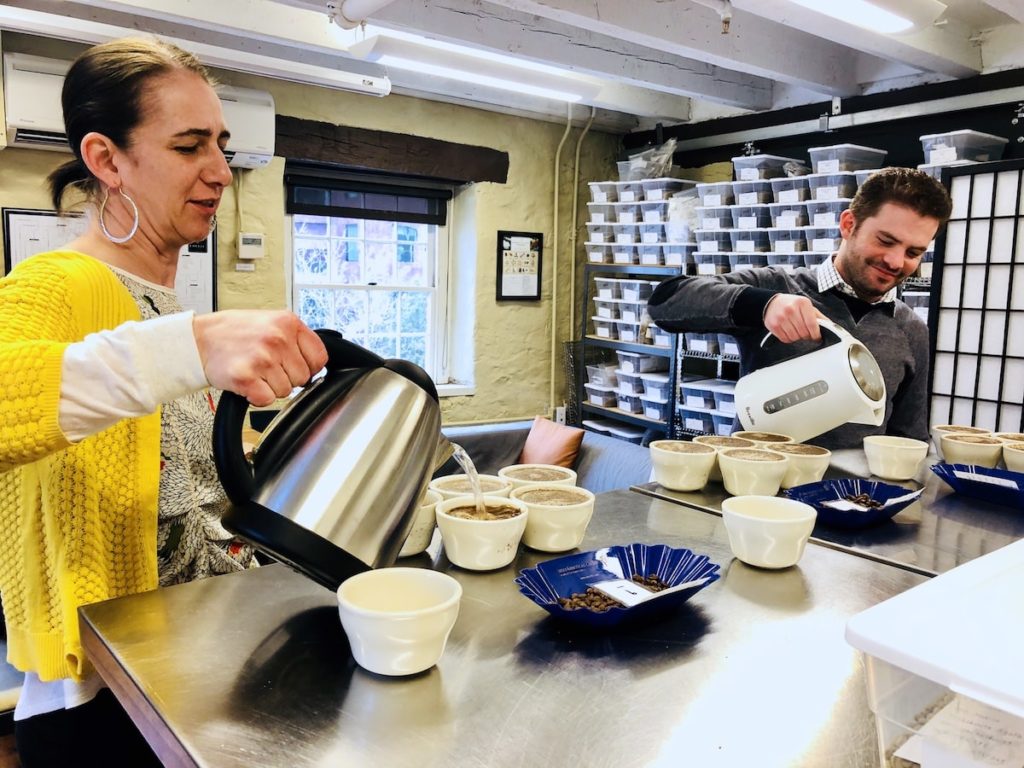Recently, Quality Control (QC) teams and traders from InterAmerican’s three offices gathered around their respective cupping tables for a blind calibration exercise.
On the tables were a variety of qualities and cup profiles from Guatemala, designed to stretch the comfort zones and palates of all involved. While the QC department shares its cupping scores daily, with an eye toward consistency and alignment, this exercise included traders and shared scores from every office cupper.
Quality is always a priority at InterAmerican, and these kinds of calibrations enable the QC, Sales and Purchasing departments to be better aligned in their scores. Providence QC Coordinator Amanda Armbrust-Asselin stressed the iterative nature of calibrating scores. Calibration is not so much a goal, Amanda says, “as a process that requires daily maintenance and active engagement from all cuppers.” And InterAmerican is up for the task.
After the cupping, Amanda brought together the scores and cupping notes from all three offices and shared the results throughout the company.
It’s important to look at the scores of every cupper, Amanda explains, “and if we do encounter a discrepancy, to encourage digging into the categories on the form to work through the reasoning of the cupper.”
The Specialty Coffee Association (SCA) form is at the heart of every cupping at InterAmerican. Cuppers rate the quality and intensity of fragrance/aroma, acidity, body, flavor, balance and aftertaste. The coffee is also scrutinized for uniformity, sweetness and any potential defects. Quality Control takes pride in safe-guarding our inventory as well as working with our producer partners to improve the overall quality of our offerings every year. For the three offices to work together effectively, we need our team to remain in close collaboration around a single score.
“We rely on the form to stay objective and talk through discrepancies to make sure it is an unbiased evaluation,” Amanda says.
It’s our goal that through the use of the SCA form and daily and deliberate calibrations, InterAmerican teams are as unbiased and accurate as possible, so our customers will always be assured of the quality of our offerings. •
—
Victoria Brown is the QC Intern in IAC’s Providence office. While new to the world of coffee, she studied food history and food policy at Sarah Lawrence College. In her spare time she enjoys reading, knitting, drawing and cooking. Her full portfolio can be found here.

